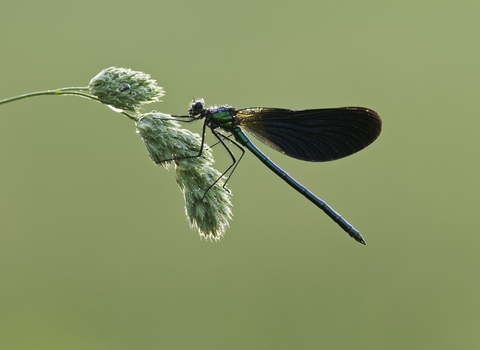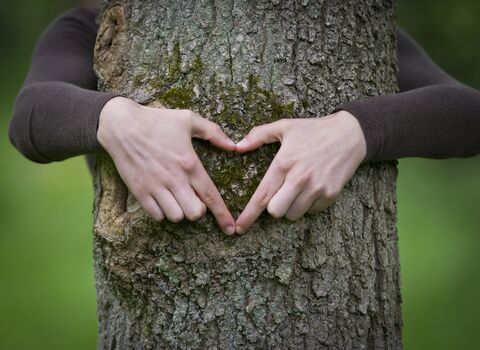What is a COP?
COP stands for 'Conference of the Parties', which are regular United Nations (UN) conferences on its different conventions (written legal agreements between countries and the UN).
This year the 30th climate COP (COP30) is taking place from 10th November to 21st November, in Belém, Brazil. This is the 30th Conference of the Parties to the UN Framework Convention on Climate Change.
Sign up for updates about COP30
What happens at COP?
COP30 will bring together world leaders. COPs are the key component of climate multilateralism. Together, they review, agree and hopefully accelerate global action to tackle climate change.
In short, this is where the governments of our world come together annually to discuss climate change. What new things do we know from last year? How are we doing in combating the changes? What do the future projections look like now? What will the countries all agree to do next?
The Paris Agreement: 10 years on
In 2015, Parties signed the Paris Agreement which aims (among other things) to limit global temperature increase to ‘well below’ 2°C.
Greenhouse gas emissions from human activities are causing this temperature rise, and the world exceeded 1.5°C of warming above pre-industrial levels for the first time in 2024/25. Under the Agreement, countries should reduce emissions and adapt to the impacts of climate change.
COP30 marks 10 years since the Paris Agreement. To stop climate change from getting worse, we must:
- stabilise levels of greenhouse gases
- reach net zero emissions
Yet the world is far off track achieving that.
Carbon dioxide is at record concentrations, and the global temperature has jumped upwards, and continues to climb. These changes are already having devastating effects on people and nature globally, from catastrophic flooding to the loss of many warm-water corals.
A core part of the Paris Agreement is a requirement that the Parties make Nationally Determined Contributions every five years – these are pledges setting out how they will cut emissions and adapt to the impacts of climate change. The third round of these pledges are to be submitted in 2025 ahead of COP30.
What to expect at COP30
COP30 will have a packed agenda, with themed days aiming to connect negotiations to real-world impact. The themes stem from the COP30 ‘Action Agenda’ which is split into the following areas:
- Energy, Industry and Transport
- Forests, Oceans and Biodiversity
- Agriculture and Food Systems
- Cities, Infrastructure and Water
- Human and Social Development
- Cross-cutting issues
We expect to see a focus on implementation through the new Nationally Determined Contributions, and Brazil’s COP President has urged for international cooperation around climate change adaptation. There is also likely to be a stronger emphasis on the role of nature in addressing climate change than has been seen at recent COPs.
Learn more about COP30 and what it is
Get updates from COP30
We’ll be sharing updates during COP30 to explain more about what this conference aims to achieve and to reflect on the outcomes. Sign up below to receive invites to watch the livestreams.
You can also join our WhatsApp Channel, where we’ll share videos, blogs and other updates from COP30.
We promise to protect your data in accordance with our Privacy Policy
What The Wildlife Trusts want to see from COP30
The main thing we want to see is agreed actions, in addition to talk. Within this, there are three themes, discussed below:
1. Nature at the heart of climate action
Nature is critical to climate action - from absorbing greenhouse gas emissions (mitigation) to providing resilience to climate change impacts such as flooding, sea-level rise and heatwaves (adaptation).
We want to see funding and prioritisation of nature-based solutions. Threats like deforestation, drought and wildfire are weakening the carbon absorbing capacity of our natural world. We want to see attention given to this, solutions identified and actions agreed.
2. Ambitious plans and evidence of action to reduce emissions
We want to see much more ambitious commitments made by countries through Nationally Determined Contributions to reduce emissions, alongside demonstration of significant progress being made.
3. Accelerating progress on climate change adaptation
We want to see countries taking adaptation seriously, demonstrating progress on the Global Goal on Adaptation and securing funding, particularly for developing countries. The increasing frequency of extreme weather and already disastrous consequences experienced worldwide, emphasise the need to accelerate adaptation action.
The Wildlife Trusts at COP30
The Wildlife Trusts are not physically attending COP30, but we will be watching with interest and reporting on the Conference to our supporters.
We are also pleased to be working with ZSL, who will be attending the Conference. Senior Policy Specialist, Bethan Laughlin, will be joining our livestreams to share their insights.
Meet Bethan Laughlin

Bethan Laughlin: ZSL Senior Policy Specialist
Bethan Laughlin is ZSL’s Senior Policy Specialist, working on climate and nature policy at national and international levels. She works closely with governments, civil society, and scientific partners to shape integrated policy solutions that work for climate, nature and people. With a background in policy development, stakeholder engagement, and international negotiations, Bethan has played a key role in advancing ZSL’s priorities and policy recommendations at major global forums, including within UNFCCC and CBD. Her work spans the development of evidence-based policy recommendations, coordination of cross-sector partnerships, and advocacy for nature positive solutions, with a focus on climate-biodiversity synergies, ecosystem-based adaptation, and the role of nature-based solutions in global climate governance.
History of the Convention
In 1992, the UN Framework Convention on Climate Change was created at the Rio Earth Summit. The ultimate objective of the Convention is to stabilise greenhouse gas concentrations "at a level that would prevent dangerous anthropogenic (human induced) interference with the climate system".
The Convention has now been signed by 198 nations and territories (the Parties). Each year the climate COPs are held to review progress, make key decisions and negotiate agreements to coordinate climate action under both the UN Framework and the Paris Agreement.
You can make a difference
Every bit of warming matters when it comes to climate change, therefore all emissions matter, and every action we take to reduce our impact matters. Protecting nature in our communities not only helps wildlife but helps us adapt to the impacts of climate change too. From taking personal action to contacting your MP, there’s small things we can all do to help. If you’re inspired to take action, have a look at our top tips to guide you.


